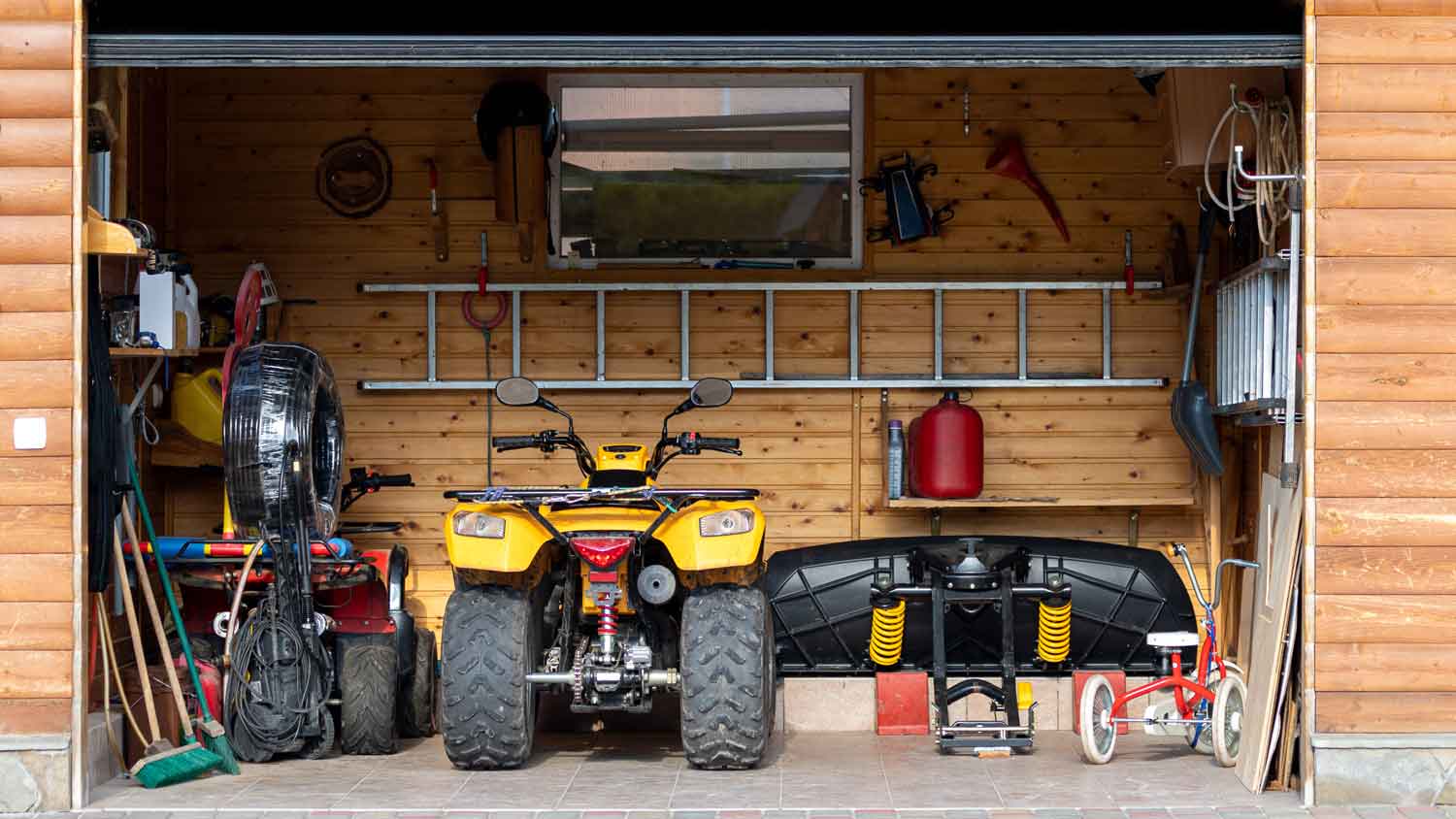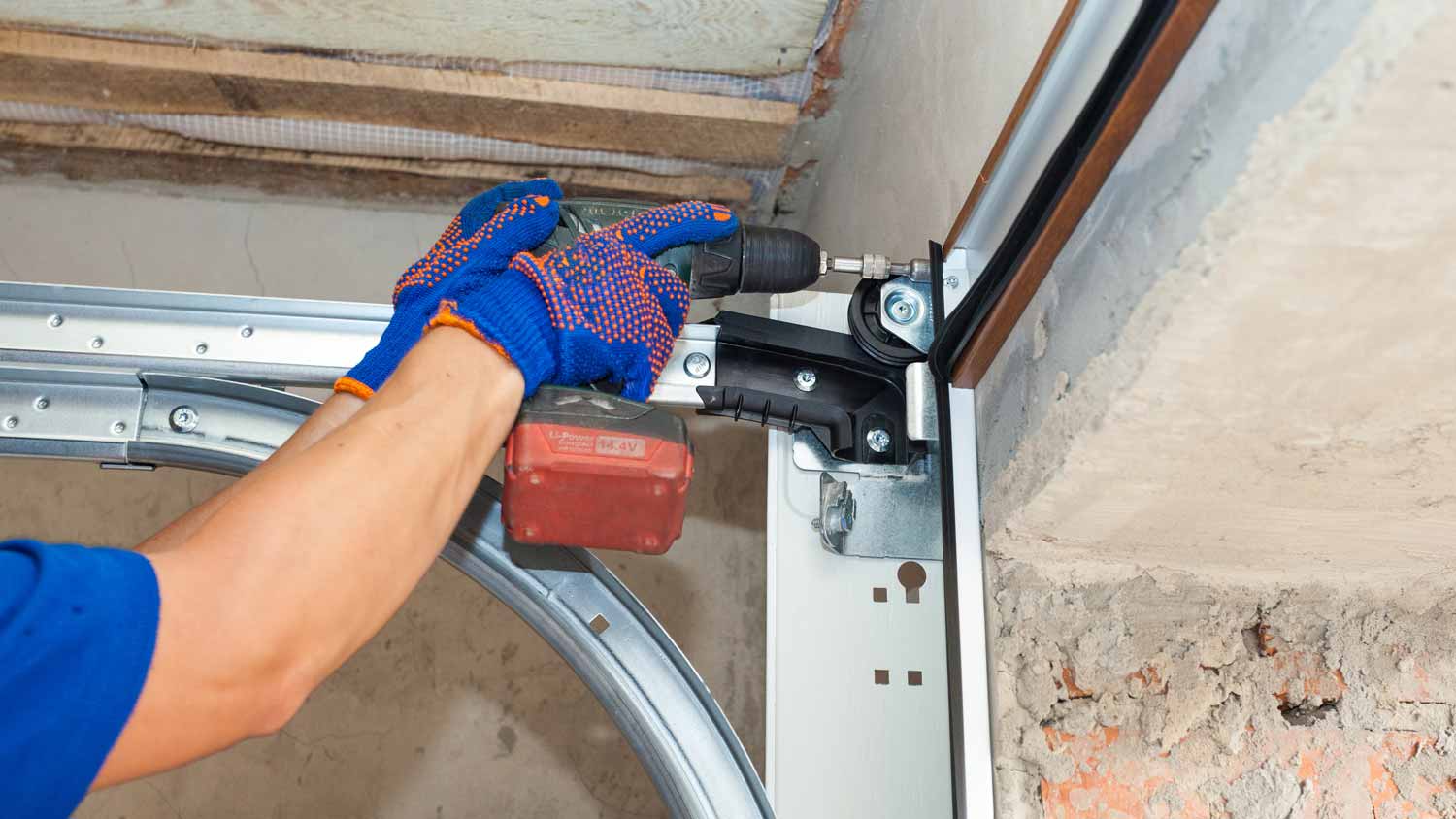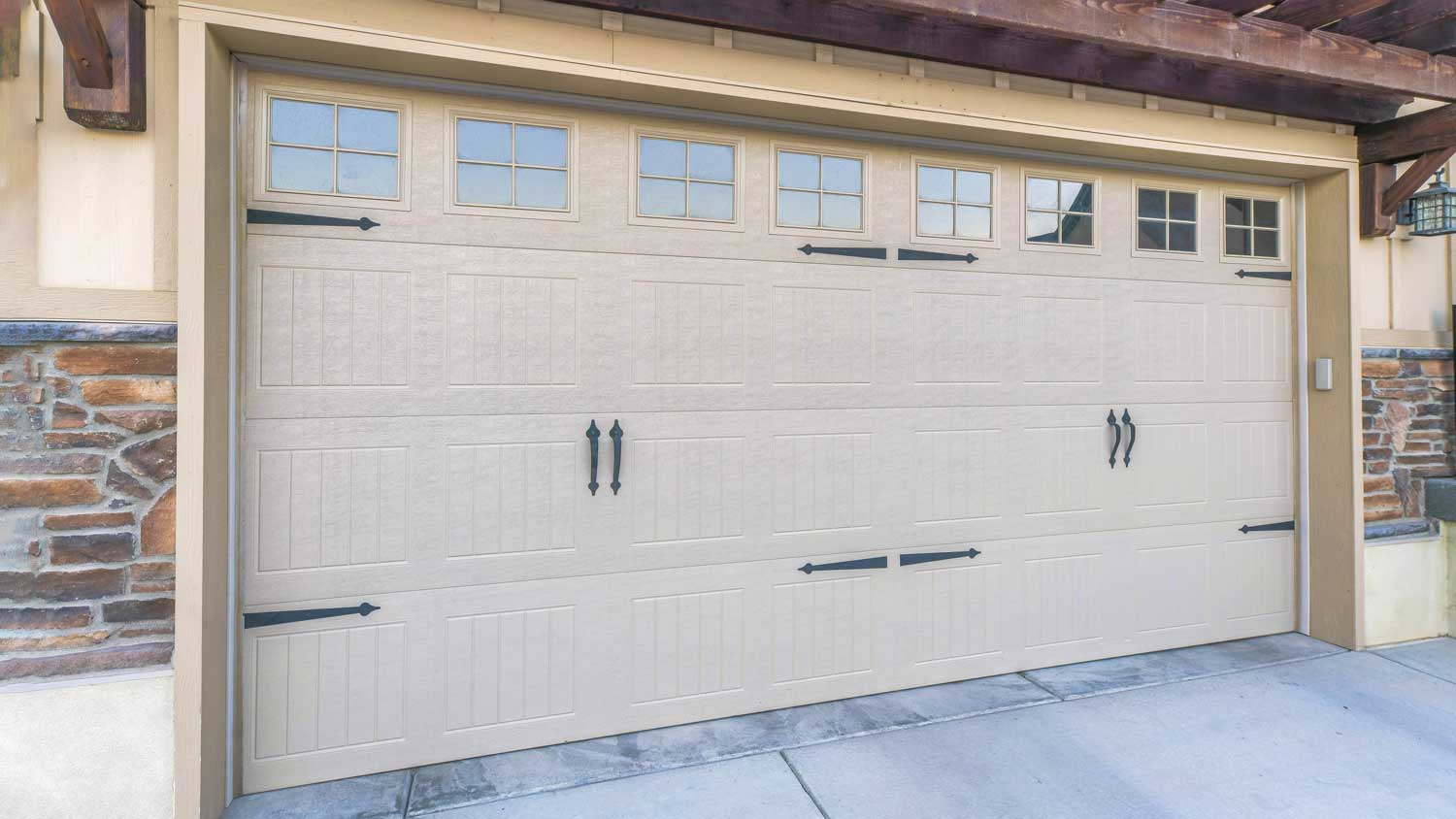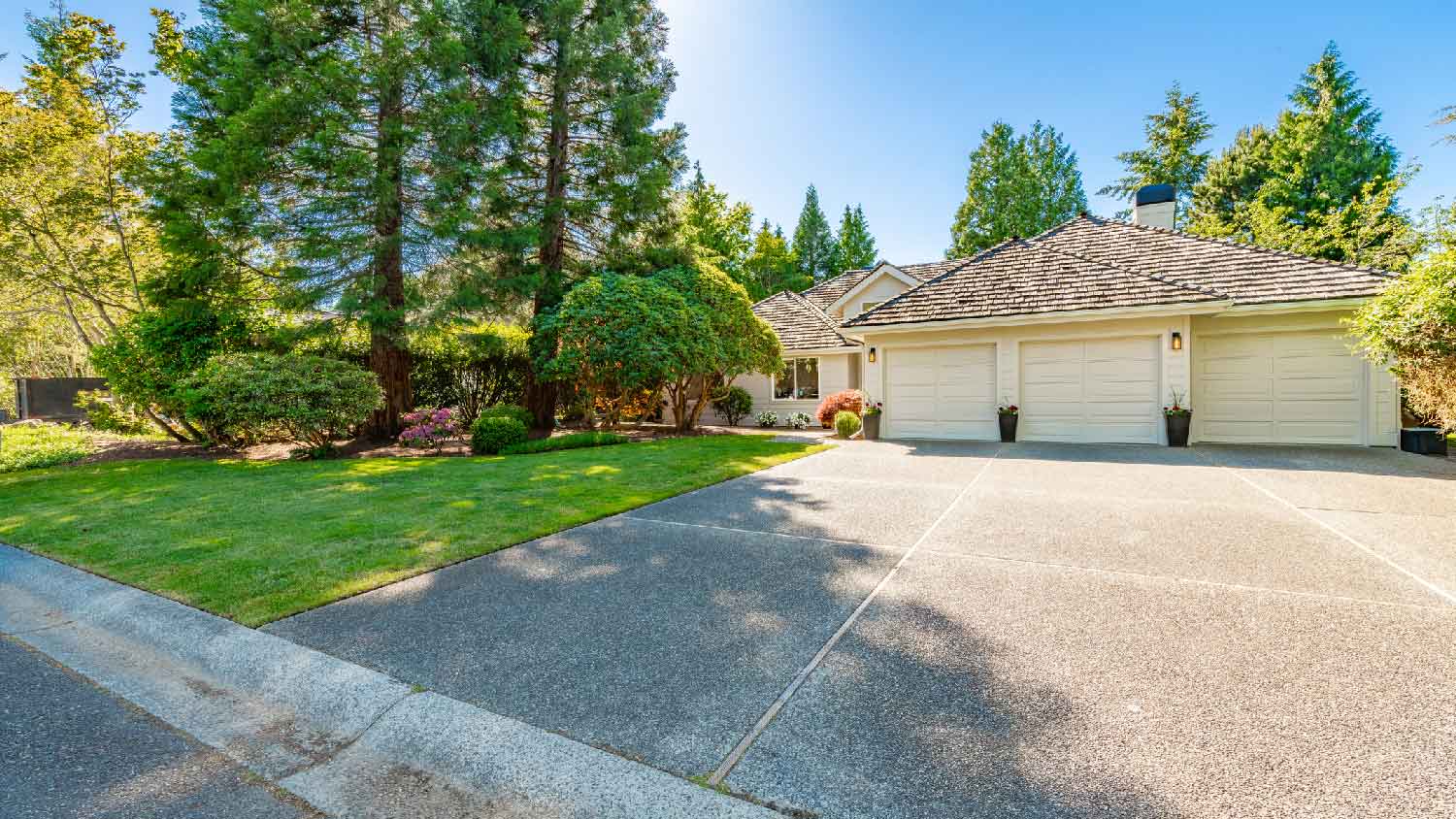Why Your Garage Door Won’t Stay Closed and What to Do About It
As one garage door closes, the same one stays open


Misaligned or blocked safety sensors are common reasons why garage doors can't close.
Garage door springs should last 10,000 cycles of opening and closing before breaking.
Contact a professional to handle garage fixes for cables and springs.
With labor included, most garage door fixes cost between $100 and $350.
If your garage door won't stay closed, you’re dealing with more than an exposed car or nosy neighbors peeking into your space. It could be a minor fix that takes minutes to DIY or a deeper problem that requires the experience and skills of a professional. But before you can begin troubleshooting, what’s the problem? We’ll cover six reasons why your garage door won’t stay closed and how you can find a solution.
1. Check the Limit Setting
The limit setting on your garage door opener is a controlled distance programmed into your door opener that determines how far the door needs to move before it closes. If the setting is off, the garage door won’t close. Manufacturers often set this distance, but you can adjust it to the needs and design of your garage when you install your door opener.
To adjust the limit setting on your own, you’ll need your door opener manual and some patience as you work through trial and error. After locating the limit switch on your garage door opener, make small adjustments to the setting. Do this after a round of opening and closing your garage door until your garage door closes completely.
2. Garage Sensors Are Misaligned
The issue with your garage door could be misaligned sensors. You’ll find safety sensors on each side of the garage door. The safety sensors shoot a beam of light across the door, and these lights need to align into one solid beam so the door knows it can close safely and completely.
Sometimes these sensors just stop seeing eye-to-eye. If your sensors are misaligned, it could result in multiple beams shooting across the door instead of one. Fortunately, realigning your garage sensors is an easy fix and should be a task you add to your annual garage door tune up. All you have to do is manually adjust them. To make the job easier, most garage door openers have a light feature that turns on when you’ve successfully realigned the sensors.
3. Object Is Blocking the Door

It’s simple, but it’s possible that your garage door won’t stay closed because something is in the way. If an obstruction prevents the door from closing, it’ll trigger the reverse mechanism of your garage door opener. And if nothing is blocking the door, there’s a chance your garage sensor might think something is. Your door might be clear, but something could be blocking the sensor.
Try cleaning your garage and focus specifically on the area by the door and the sensors. Remove any obvious obstructions before moving on to smaller things like leaves. It’s hard to imagine that a leaf has the power to keep your garage door from staying closed, but safety sensors are sensitive. Even the smallest item can trigger the garage door to keep going back up and stay open.
4. Dead Garage Remote Batteries
If you can’t get the garage door to close with the remote, first find out if the issue is that your garage door opener isn’t working. Rule out this problem by checking to see if the door closes with your wall control unit. If it does, you might have dead batteries or a broken remote on your hands. There could be interference from nearby devices, like your neighbors’ garage door openers.
If replacing the batteries doesn’t fix the problem, and you’ve checked for interference, try reprogramming your garage remote.
5. Track Obstructions
Garage door tracks ensure the smooth operation of the door, guiding it as it opens and closes. Interference with the tracks due to obstructions can hinder the door's movement and cause improper closure. Common obstructions include debris, such as leaves, dirt, or small objects, that may accumulate over time. Damaged or misaligned tracks can also obstruct the door's path.
Homeowners can inspect the tracks regularly and clear away any accumulated debris. This task can be completed with a broom or compressed air. If the track is misaligned, adjusting the track alignment or tightening loose bolts and screws may resolve the problem. It's useful to take proactive measures to keep the tracks clear and in good condition.
6. Loose Opener Chain or Belt
If the chain or belt on a garage door opener is loose, it can have a significant impact on the door's functionality, particularly when it comes to achieving a complete closure. Excessive slack in the chain or belt can cause a lack of tension during the closing process, leading to difficulties with the door moving smoothly along the tracks or failing to close entirely. Extra slack can also result in the garage door being partially open. This common garage door problem is especially noticeable in automated garage doors, as the opener depends on the proper tension of the chain or belt to control the door's accurate movements.
Homeowners can tackle the issue of slack in garage door openers. These devices usually feature adjustable mechanisms for chains or belts. Tension can be tightened or loosened as required with the help of the tension adjustment feature available in most models. Refer to their garage door opener manual to identify the adjustment points and carry out necessary modifications to remedy excess slack.
7. Garage Door Cables Are Damaged
Your garage door will have three main types of cables—lifting cables, retaining cables, and emergency release cables. Essentially, these cables allow your garage door to open and close. When your garage door won't stay closed, your door cables could be damaged or broken. Continuously trying to open and close with damaged or broken cables can lead to irreparable damage. On top of the headache, you’ll add the cost of a garage door replacement to your plate.
Damage to door cables happens over time. It could be typical wear-and-tear. If they come in contact with water, they’ll corrode and the metal will break down. Your door cables can rub against other parts of a garage door, and the friction can cause them to fray, weaken, and ultimately break.
The telling signs that the issue could be your garage door cables are if the garage door is stuck in an open position or crooked. When dealing with a damaged or broken cable, you should avoid using your door until you replace the cable. And this is one job we’d definitely recommend you leave up to the professionals.
8. Broken Garage Door Springs

If you’ve checked everything else on this list and your garage door still won’t close, you could be dealing with a broken spring. Garage door springs are under great tension. They work with your cables to raise and lower your door. As your door lowers, the springs gain tension so the door doesn’t slam into the ground.
While broken springs usually stop your door from opening, they could be a reason why your door suddenly stopped working and won’t close. A sign that you’re dealing with a damaged spring would be the garage door having trouble opening and closing. If your garage spring broke while you were home, you likely heard it. It would’ve been a loud sound like a gunshot or a car backfiring. Most garage door springs should last for 10,000 opening and closing cycles. After 10,000 cycles, the spring will break, and you’re looking at a garage door spring replacement cost of around $150 to $350.
Handling a broken garage door spring isn’t a beginner, intermediate, or even advanced project for homeowners. Garage door springs are dangerous. If mishandled, the spring can snap back at you, potentially causing a grave injury. If improperly installed, your springs can make the door fall. Once you suspect a broken door spring, avoid opening and closing your garage door. Contact a garage repair person in your area to come check out the problem as soon as possible.
Troubleshooting a Garage Door DIY vs. Hiring a Pro
If your garage door won’t stay closed, your best bet is to contact a local garage door repair professional. While changing limit settings and realigning safety sensors are quick fixes, more challenging issues with lifting cables and door springs need a professional touch. The average garage door repair cost is $260, but the final cost depends on the part that needs to be repaired or replaced. With labor included, it’ll likely cost between $150 to $360 to fix your garage door.
Jouviane Alexandre contributed to this piece.





- Garage Door Installation Tips Every Homeowner Should Know
- 10 Garage Door Maintenance Tips for Maximum Longevity
- What Are All the Parts of a Garage Door?
- Why the Garage Door Is Not Opening, But the Motor Is Running
- Why Your Garage Door Is Opening by Itself and What to Do About It
- Why Your Garage Door Won’t Close and What to Do About It
- What to Do if You Backed Into Your Garage Door
- Why Your Garage Door Opens a Little and Then Stops
- How to Make a Garage Door Quieter: 7 Ways to Reduce Noise
- 8 Reasons Your Garage Door Is Stuck and What to Do









